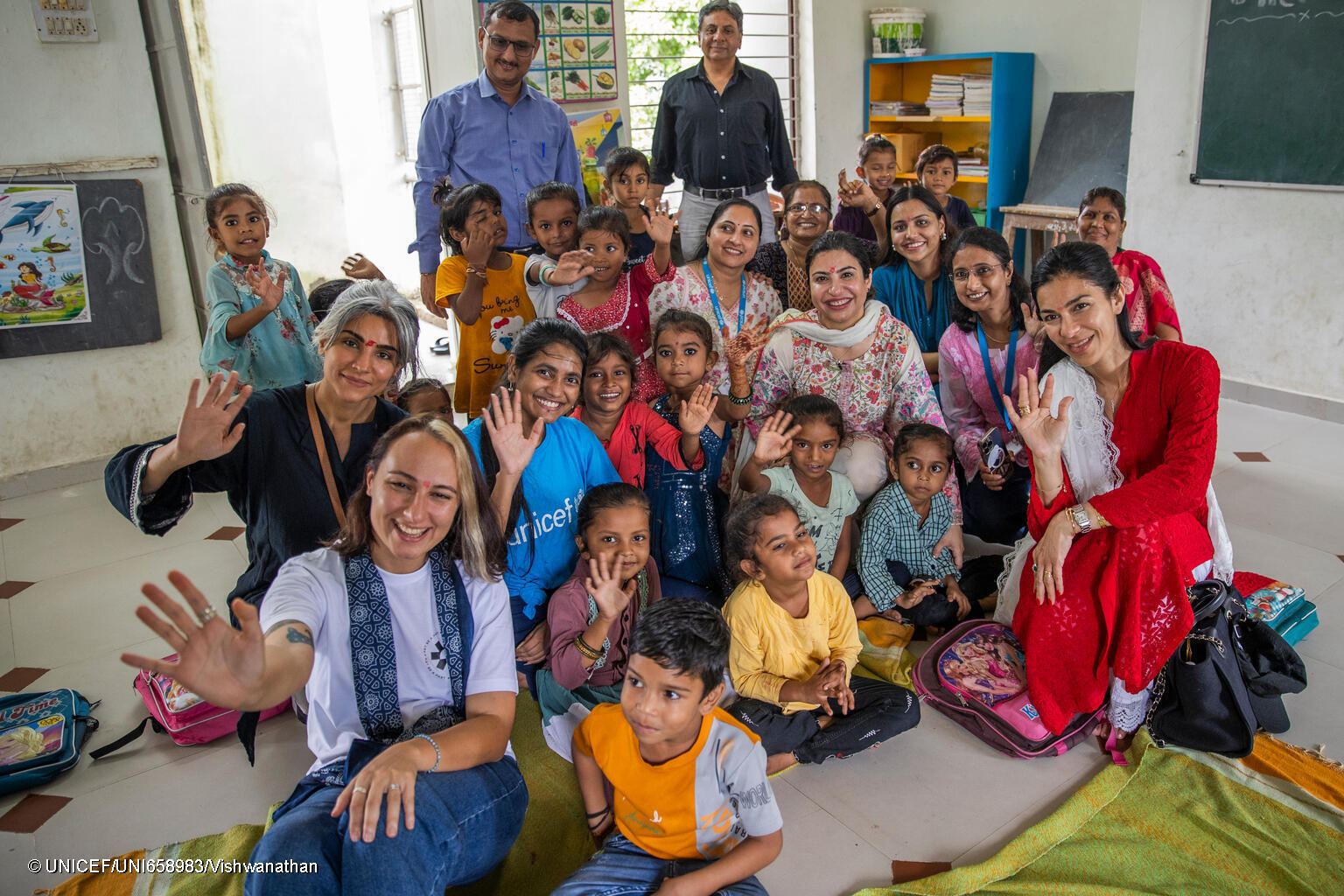In India, where education has long been recognized as a pathway to growth and equity, millions of children are finding new opportunities to learn, grow, and thrive. Yet, for children with disabilities (CwD), the path to inclusion remains fraught with challenges, from inaccessible infrastructure to limited awareness and inadequate teacher preparation.
The transformative partnership between UNICEF and Art be a Part, this reality is changing for thousands of children. Through their shared vision, over 10,000 children aged 3–10 years with disabilities are now gaining access to quality and inclusive education, paving the way for lifelong learning and empowerment.
India’s education landscape has evolved significantly over the past two decades. Over 246 million children are now enrolled in schools, and 73% of Grade 1 entrants have pre-primary experience, a sign of growing emphasis on early childhood education.
However, children with disabilities remain among the most marginalized. Despite constitutional and policy guarantees, their school participation remains low, only 0.9% of total enrolment from pre-primary to Grade 12. Girls with disabilities are even more at risk of exclusion, with enrolment dropping sharply at higher grades.
Inadequate school infrastructure compounds the problem: while 59.5% of schools have ramps with handrails, only 30.6% of children with special needs (CWSN) – friendly toilets are functional. These barriers underline the urgent need for systemic solutions, a need this initiative directly addresses.
The UNICEF & Art be a Part partnership focuses on enhancing inclusive learning environments through a multi-pronged strategy, from early identification to home-based education and teacher training.

Art be a Part founder & UNICEF India Champion for Children, Medha Nanda, along with Advisory Board Member of Art be a Part, Namrata Shroff & Founder of Looking Glass FZE, Rinku Awtani, pose for a group portrait with Children & special educators. City: Gandhinagar, State: Gujarat, Country: India, 10th September 2024 – Photograph By UNICEF India/ 2024/ Prashanth Vishwanathan.
1. Identifying and Including Children with Disabilities
In 20 communities across an aspirational district, door-to-door surveys helped identify 40 children with disabilities, many of whom had never been enrolled in school. Following sustained family engagement, 38 of these children are now attending either Anganwadi centres or schools, marking their first step into inclusive learning.
Additionally, 37 new cluster-level resource rooms were established in Gujarat, bringing the total to 792. These rooms provide specialized therapy, counselling, and teacher support closer to communities, ensuring early intervention and improved referral systems.
2. Improving School Infrastructure
Through the School Accessibility Audit Toolkit, nearly 2,000 schools have been assessed for accessibility, prompting infrastructure upgrades that now benefit 275,000 children across the state. These efforts are creating safer, more inclusive learning spaces that welcome every child.
3. Expanding Home-Based Education
For children with severe and multiple disabilities who cannot attend school, Home-Based Education (HBE) has emerged as a powerful inclusion model. With UNICEF’s support, 2,575 children (1,095 girls and 1,480 boys) are now receiving structured education at home through comprehensive HBE guidelines and multilingual learning materials.
Training sessions for 283 Master Trainers have standardized HBE delivery, while parents are equipped with tools to create stimulating learning environments at home.
4. Strengthening Teacher Capacity
Inclusive education begins with empowered educators. To this end, UNICEF has supported the design of training modules for Anganwadi workers, teachers, and supervisors across multiple states. More than 200 master trainers and 2,000 special educators have been trained, and 87,000+ users are now active on the PRASHAST App, a digital tool for early disability screening.
A Training Needs Assessment covering 963 block resource persons in Assam and West Bengal has further informed the development of refresher training and practical classroom strategies, ensuring inclusive pedagogy reaches every classroom.
5. Empowering Parents and Communities
Community awareness is essential for sustained inclusion. In October 2024, Early Childhood Care and Education (ECCE) Day reached 184,000 parents across 32,901 Anganwadi centres, focusing on developmental delays and early intervention.
Parents are now more engaged in supporting learning at home, and monthly home visits by Anganwadi workers provide personalized guidance to families with children with disabilities.











Please Provide your email id to download